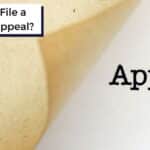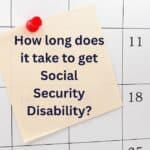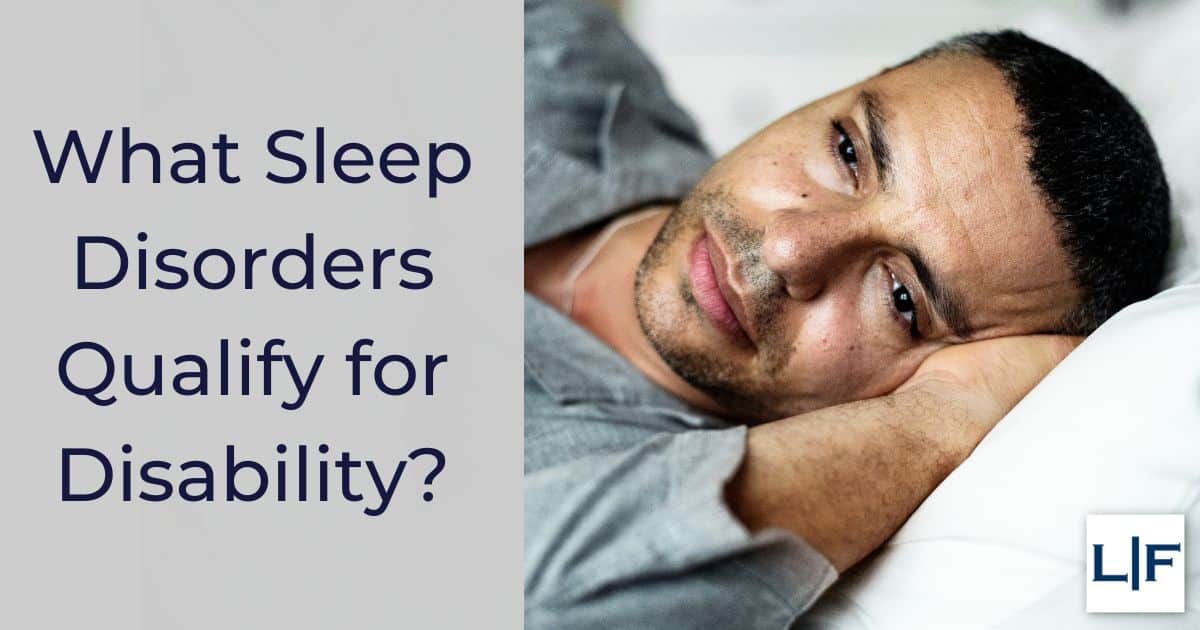Can my sleep disorder qualify for disability?
As many as 70 million adults in the U.S. suffer from some type of sleep disorder, reports the Sleep Foundation. Some of the most common disorders are sleep apnea, insomnia, restless legs syndrome, and narcolepsy.
The effects of a sleep disorder can disrupt a person’s entire life. In addition to causing fatigue, it can affect alertness and concentration, impair memory, affect mood, and reduce intellectual abilities. Even worse, it can lead to serious health risks including heart disease, high blood pressure, and stroke. People with severe sleep deprivation are also more at risk for mental disorders, obesity, and substance abuse.
We are often asked “What sleep disorders qualify for disability benefits?” Several sleep disorders can be the basis for disability benefits, including insomnia, narcolepsy and sleep apnea. Winning the Social Security Administration’s (SSA) approval will not be easy, though. The claims examiner will scrutinize your case to determine if your condition genuinely prevents you from working. For helping getting Social Security disability for a sleep disorder, call Lunn & Forro, PLLC for a free consultation: 888-966-6566.
How can I qualify as disabled for my sleep disorder?
Generally, there are two ways to qualify a disabled for the purposes of Social Security disability benefits: 1) meet the requirements under one of the listings in the Blue Book, or 2) otherwise prove that your condition is so severe that you cannot work.
The SSA had a listing for sleep-related breathing disorders, but they removed it in 2013. However, if your sleep disorder has led to another health condition that is listed, such as chronic heart failure, heart disease, or a severe cognitive impairment, then the SSA will deem you disabled if you meet the requirements under the associated listing.
How do I prove my disability if I do not meet a listing?
For applicants who do not meet the criteria under any listing, you can still qualify as disabled if your condition(s) and symptoms severely impair your ability to work. When you submit your application, the SSA will review all of your medical files and assign you an RFC (residual functional capacity) rating. Your RFC indicates what kinds of basic skills you are still capable of doing, despite your condition.
The claims examiner will look at how your symptoms are affecting your ability to perform general tasks, such as communicating with coworkers, concentrating while learning a new task, exerting physical energy, etc. S/he will also consider your doctor’s input about your limitations, treatments, and prognosis.
If the SSA finds that your condition prevents you from returning to your old job and that, given your circumstances, you cannot adjust to new work, then it may still grant you benefits through a medical vocational allowance.
What are other criteria must I meet for disability benefits?
For all types of physical and mental conditions, including sleep disorders, there are several general criteria you must meet to obtain disability benefits:
- You must meet the SSA’s definition of disabled, which means either having a listing-level condition (and meeting its criteria), or having a low RFC that prevents you from “engaging in substantial gainful activity” or SGA. The SSA defines SGA as having an income over a certain threshold. (In 2022, if you earn more than $1,350, you are engaging in SGA and are not eligible for disability benefits.)
- Your condition must have lasted or be expected to last a year or more or result in death.
- You must meet either financial or work history requirements, depending on the disability program you are applying for:
Supplemental Security Income (SSI) applicants must prove that their income and the value of their assets fall below a certain amount. For individuals, your income must be below the level for your household size and you must have less than $2,000 in assets. Note, however, that the SSA excludes a good portion of your income and assets when determining if you qualify, so these figures are somewhat misleading at first glance.
Social Security Disability Insurance (SSDI) applicants must have earned enough work credits by working and paying into the Social Security system. The number of credits needed depend on your age.
What documentation do I need to prove my disability to the SSA?
Medical and mental health records are your primary resources for proving your disability to the SSA. Gather your records for all the providers you have seen for issues related to your sleep disorder and other disabling conditions you may have. This might include your files from:
- Your family doctor
- The hospital
- Medical specialists
- Sleep therapists and sleep centers
- Your psychologist or psychiatrist
Your files should include medical tests, diagnoses, treatments you have tried and your response to them, details about your limitations, and prognoses.
You can also provide non-medical documentation about your condition to the SSA. For instance, your spouse, group therapy leader, social worker, family members, religious leaders, etc. can write letters about how your sleep disorder and related condition are affecting your ability to function and work. Your personal testimony may be instrumental, as well. The more detailed, supportive evidence you have, the better.
It is not uncommon for the SSA to deny an applicant’s initial claim, often due to lack of evidence. To avoid a denial, call us for help with the claims process.
What if the SSA denied my disability claim?
When your sleep disorder is so severe that you cannot work, disability benefits can be a lifesaver for you and your family. If the SSA denied your claim, you are not without hope. We can help you appeal your claim.
There are several levels of appeals, and each stage provides another opportunity to submit additional supportive evidence and have the SSA reconsider your case. It is not easy to win your benefits, but diligence can result in a successful outcome.
Our diligence, combined with our legal experience and work ethic, can help you secure your benefits. Contact Lunn & Forro, PLLC today for a free, no-obligation consultation: 888-966-6566.
Related Posts

What is a consultative exam?
A consultative exam is ordered when Social Security believes that they need more medical information to make a decision in your case. This exam is

How Do I File a Disability Appeal?
You gave Social Security Disability all the information they asked for and agreed to a medical exam, but your disability claim was still denied. It

How Much Does a Disability Lawyer Cost?
Lawyer fees in Social Security cases are contingent. So the short answer is that it costs you nothing up front to hire a lawyer at

How Long Does It Take to Get Social Security Disability?
“How long does it take to get Social Security Disability benefits?” is probably the most common question that our clients ask. Every case is different,
Do I Need a Disability Lawyer to get SSDI?
Many people wonder if they really need the help of a disability lawyer to obtain their Social Security benefits. You May Not Need a Disability
Notice of Hearing – Social Security Disability
The wait for a disability hearing varies from a few months to over a year, and once the Request for Hearing is filed, you will
I fired my disability lawyer. Now I need a fee waiver. What do I do?
Whenever a disability lawyer withdraws from a case, either on their own or at their client’s request, they must decide whether or not to waive
The Role of a Social Security Disability Attorney
When people are faced with applying for Social Security disability benefits, many wonder if it is worthwhile to hire an attorney. After a life-altering disability



